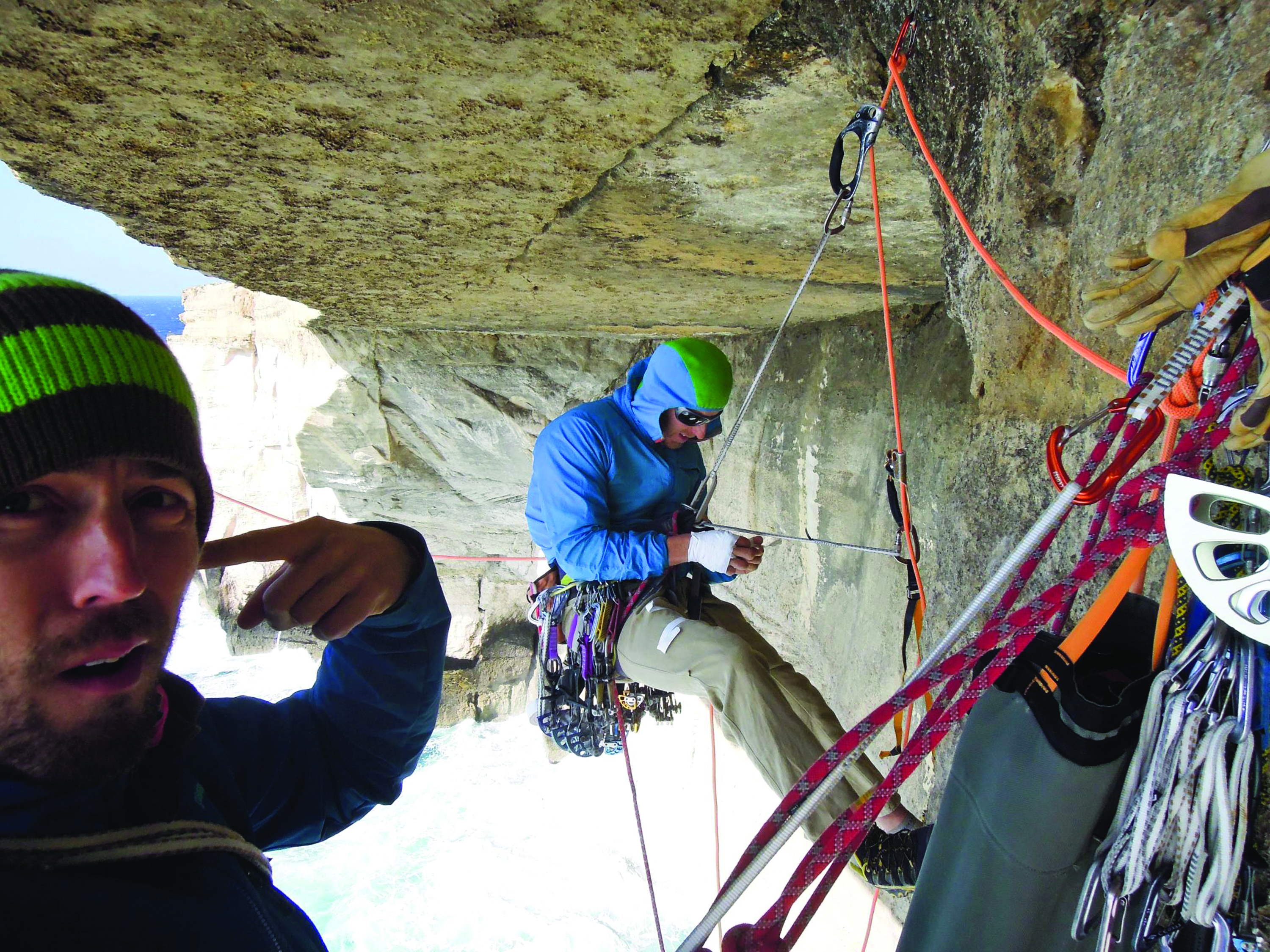Action. Adventure. Adrenaline. Autana has it all.
Take part in the first Winnipeg Adventure Film Festival at the Park Theatre on Tuesday, Mar. 5, to see the film Autana and three other adventure films. Sonnie Trotter, Canadian climber and adventure enthusiast, will also give a multimedia presentation.
Ivan Hughes, originator of the festival, started the Squamish Mountain Film Festival eight years ago. Hughes hopes to continue with the Adventure Film Festival in Winnipeg each year.
Autana is an award-winning film, taking place at the Cerro Autana mountain in the Amazon. Climbers Leo Houlding, Sean Leary, and Jason Pickles defy odds as they attempt to climb a part of the mountain that has never been climbed before.
The climbers must pretend to be tourists as they pass through military checkpoints to reach Cerro Autana. The mountain is sacred, and they must gain access to it from the local Shaman. Their journey promises to be exciting and entertaining as they experience jungle creatures and extreme humidity.
The Denali Experiment, Tent Bound in Devil’s Bay, and Cascada will also be shown at the festival.
In The Denali Experiment, skier Sage Cattabriga-Alosa and snowboarder Lucas Debari take on the Denali Mountain. The North Face athlete team help out the climbers as they embark on the hardest expedition of their lives.
Tent Bound in Devil’s Bay takes place in Newfoundland as four climbers attempt to climb a 1,200-foot granite wall.
“For the climbers, their experience became as much an inward exploration of their own hopes, anxieties, and fears as it was an exploration of the vertical walls,” says Hughes.
In Cascada, viewers join paddlers and cinematographers on a journey through a remote Mexican jungle. Hughes describes the activities in the film as needing a careful balance between risk and reward.
“[They are looking for] the perfect waterfall, and the perfect shot. Paddler and cinematographer alike explore a world beyond the expected,” says Hughes.
Sonnie Trotter, who is set to make a live presentation before the film, has experienced this balance himself. His presentation will include multimedia slides and clips from his mountain adventures.
Trotter, 33, who has not been home for more than three months since graduating high school, continually seeks new heights and adventure.
“Although I love and miss my family greatly, I will never regret leaving behind the suburban sprawl of southern Ontario to explore a world of uncertainty, a world of great character, raw beauty, and individual expression,” says Trotter on his website, www.sonnietrotter.com.
For Trotter, travelling is about cultural immersion rather than a traditional vacation. He tries to stay as long as he can in the places he visits and truly experience the culture.
Trotter has been all over the world, including Mexico, Australia, and India. He has also spent a large amount of time in North America, spending a very small amount of money and climbing as many mountains as possible.
He believes in travel wholeheartedly.
“I read somewhere that life is a great book, and for those who don’t travel only read one page. I think we were born to move and to challenge our bodies and broaden our minds; when we don’t, our lives and cells grow stagnant,” says Trotter.
According to Outside Online, Trotter had a childhood dream of being a ninja. From there, he dreamed of being an architect. This high school dream influences his current choice of mountains to climb.
“I’m attracted to visually aesthetic lines, the kind of climbs that look more like art sculptures than anything else,” he told Outside Online. “Thinking about it now, I think being a professional rock climber is half ninja, half architect.”
Climbing has always been an adventure for Trotter, but not always in the good sense. In Arizona, he experienced a bad accident with his friend Steve. After an 80-foot fall, the two men had to go to the hospital in Las Vegas. They thought their climbing careers were over.
Trotter’s positive attitude allowed him to continue the sport.
“I think climbers just always find a way back if they truly love it. You see it every day, people with both minor and major injuries still getting outside and still getting after it, and that’s just awesome.”
If you’re wondering how Trotter has managed to spend so much time away from home and travelled to so many places, the answer may be in his choice of accommodation.
Last year, Trotter and his wife moved into a van.
“Living in a van allows the entire world to be your personal backyard. You live and love, outside. The best part for me is connecting with the natural rhythm of life,” Trotter wrote on The Cleanest Line (Patagonia).
The experience has increased his environmental awareness, and his perception of the difference between wants and needs. He learned important lessons, such as the increasing need to conserve water. Trotter and his wife practiced conservation methods such as saving pasta water for tea, and drinking water used for steaming vegetables.
“One day, our children’s children might not have the same luxuries we do. The things they want might also be the things they need, and water might be one of them.”
Trotter is looking forward to presenting in Winnipeg.
“I’m really stoked to come to Winnipeg to be part [of] a brand new festival and share some stories with an enthusiastic crowd. I’ll definitely have to blog about this!”
Tickets to the festival can be purchased at www.whattheheck.ca. They are $15 in advance, and $18 at the door.





